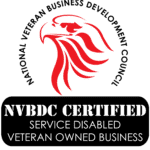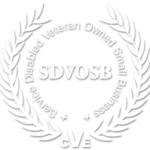All industries within federal and commercial markets are made up of businesses that fall into two categories; high performers and low performers. No one seeks to enter a market and build a company only to achieve low remarks for quality, customer service or operational performance. The biggest difference between high and low performing businesses is their approach to consistent improvement. There are an endless number of factors that can prevent “the perfect job” or the “deal of a lifetime”, most of which are outside of your control as a business. The only way to consistently improve is to control the factors that you CAN control. Organizations that consistently strive for excellence (high performers) are known as Highly Reliable Organizations (HROs)
In the ever-evolving realm of HROs, the bedrock of operational excellence, safety, and adaptability is laid by a carefully crafted set of guiding principles. These principles serve as a compass, navigating these organizations through the complexities of their industries while maintaining an unwavering commitment to exceptional performance. As we embark on a deeper exploration of the nuances inherent in these HRO principles, it becomes evident that they are more than just a framework—they are the cornerstone of a resilient and forward-thinking operational philosophy.
Highly Reliable Organizations and their Preoccupation with Failure
HROs are known for their meticulous approach to assessing anomalies, no matter how minor, recognizing them as potential symptoms of deeper systemic issues. At ACE, we’ve embraced this preoccupation with failure as a cornerstone of our operational philosophy. Each challenge, be it big or small, serves as an opportunity to refine and enhance our systems. We foster a culture that not only encourages the reporting of errors and near misses but actively seeks to extract valuable lessons from these experiences.
Acknowledging the potential liabilities of success, ACE remains steadfast in its commitment to avoid complacency. The risk of reducing safety margins and drifting into automatic processing is well understood, making lifelong learning not just a commitment but a perpetual journey ingrained in our organizational DNA.
1. Reluctance to Simplify for HRO’s
In a world that often seeks simplicity, HROs consciously resist oversimplification. ACE mirrors this approach by embracing the complexity, instability, and unpredictability inherent in our industry. Our teams actively seek out individuals with diverse experiences, cultivating a culture that values skepticism toward received wisdom and encourages negotiation without sacrificing the nuanced perspectives that different team members bring to the table.
As we strive for excellence, ACE recognizes that a nuanced understanding of our environment leads to more informed decision-making and sets the stage for innovative problem-solving.
2. Sensitivity to Operations
The concept of sensitivity to operations emphasizes the importance of identifying unexpected events before they escalate. ACE shares this commitment by implementing a proactive approach to organizational health. We conduct regular assessments, recognizing that latent failures — those imperfections in supervision, reporting of defects, training, and more — could potentially evolve into significant issues if left unattended. By viewing normal operations as a source of valuable insights, we position ourselves to catch and address deficiencies before they escalate into unexpected events.
3. Commitment to Resilience
HROs are characterized not by their absence of errors but by their ability to minimize the impact of errors on the system. ACE echoes this commitment to resilience by prioritizing the reduction of errors and ensuring that, when they do occur, they don’t cripple our systems. Our culture promotes the agile creation of workarounds, utilizing the expertise of our team members to keep our systems robust. We recognize the pivotal role played by experts with deep experience, special skills, and training in maintaining organizational resiliency.
4. Deference to Expertise
While decision-making during normal operations may emanate from the top, HROs shift decision-making authority to those on the front lines with the most expertise during high-tempo, abnormal situations. ACE adopts a similar approach, understanding that expertise is the key to effective decision-making, regardless of hierarchical position. Our organizational structure is designed to be adaptive, recognizing and deferring to expertise to navigate challenges effectively and efficiently.
ACE doesn’t just adhere to these HRO principles; we embody them. By embracing a preoccupation with failure, reluctance to simplify, sensitivity to operations, commitment to resilience, and deference to expertise, ACE continually strives to be the best version of itself. Our commitment to these principles ensures that we provide our clients with unparalleled excellence and reliability, making ACE a beacon of success and innovation in our industry.



